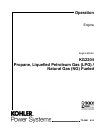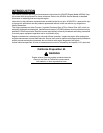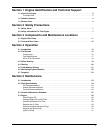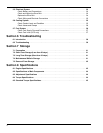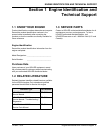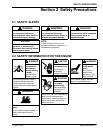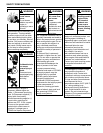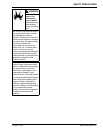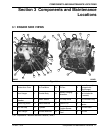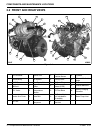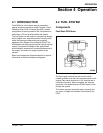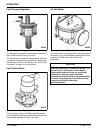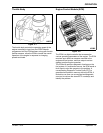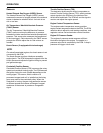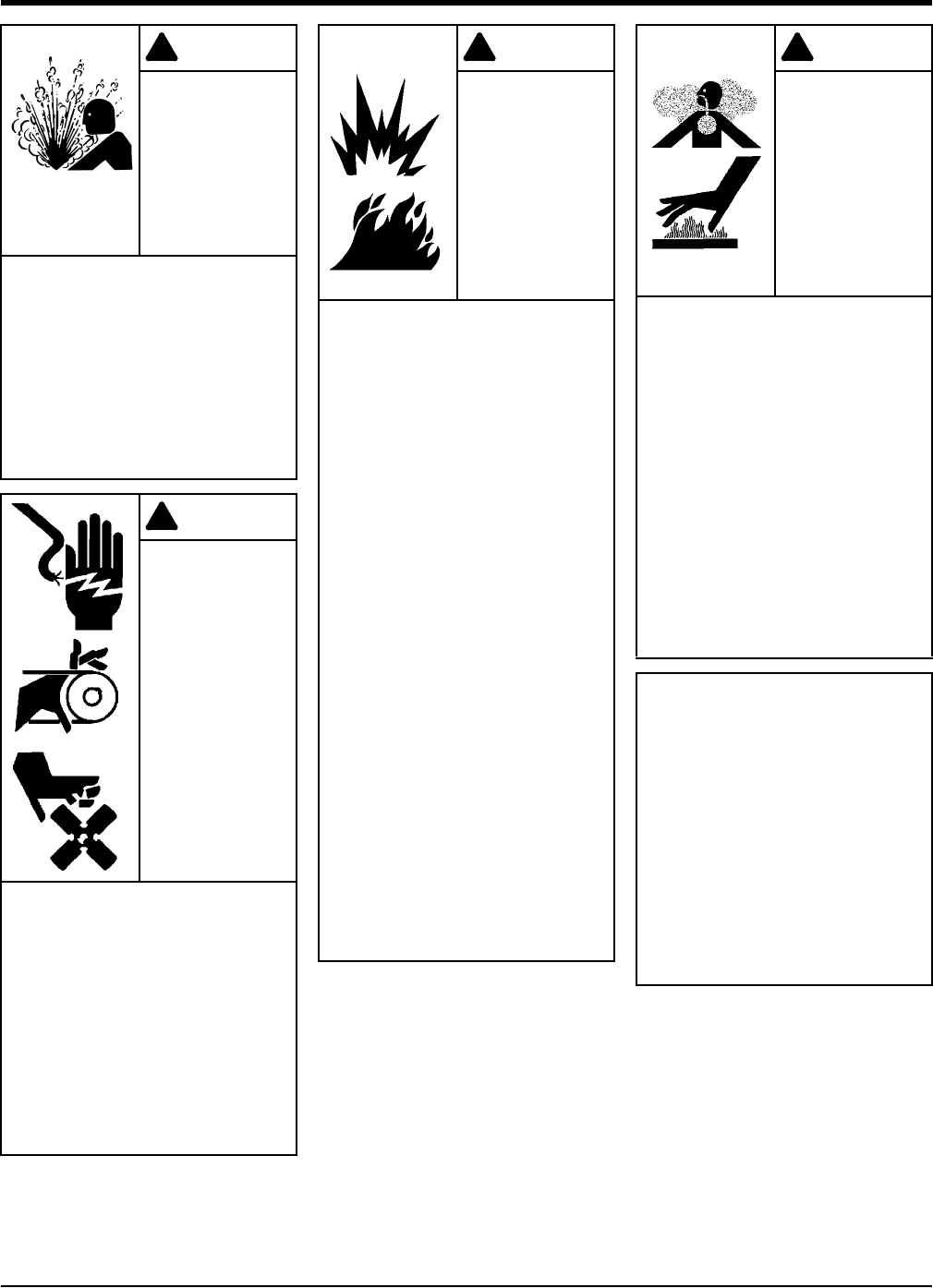
SAFETY PRECAUTIONS
8 Safety Precautions TP-6901 6/14
WARNING
!
Hot liquid can
cause severe
burns.
Do not loosen
radiator cap while
engine is
operating or warm
to touch.
Liquid coolant can be extremely hot
from operation. Turning radiator
cap when engine is hot can allow
steam and scalding liquid to blow
out and burn you severely. Shut off
machine. Only remove radiator cap
when cool enough to touch with
bare hands. Slowly loosen cap to
the first stop to relieve pressure
before removing completely.
WARNING
!
Accidental starts
can cause
severe injury or
death.
Disconnect and
ground spark plug
leads before
servicing.
Before working on engine or
equipment, disable engine as
follows: 1) Disconnect spark plug
leads. 2) Disconnect negative (–)
battery cable from battery.
Before disconnecting negative (–)
ground cable, make sure all
switches are OFF. If ON, a spark
will occur at the ground cable
terminal which could cause an
explosion if hydrogen gas or
LPG/NG fuel vapors are present.
WARNING
!
Explosive fuel
can cause fires
and severe
burns.
If a gaseous odor
is detected,
ventilate the area
and contact an
authorized service
technician.
LPG (Liquefied Petroleum Gas) is
extremely flammable and tends to
settle in low areas where a spark or
flame could ignite the gas. Do not
start or operate this engine in a
poorly ventilated area where
leaking gas could accumulate and
endanger the safety of persons in
the area.
NG (Natural Gas) is extremely
flammable, is lighter than air, and
rises. Do not start or operate this
engine in a poorly ventilated are
where leaking gas could
accumulate and endanger the
safety of persons in the area.
To ensure personal safety,
installation and repair of LPG/NG
fuel supply systems must be
performed only by qualified
LPG/NG system technicians.
Improperly installed and
maintained LPG/NG equipment
could cause the fuel supply system
or other components to
malfunction, causing gas leaks.
Observe federal, state, and local
laws governing LPG/NG fuel,
storage, and systems.
WARNING
!
Handling caustic
engine fluids
and chemical
products can
cause severe
chemical burns,
nausea, fainting,
or death.
Most chemicals such as used
engine oil, antifreeze/coolant, rust
proofing agent, inhibiting oil,
degreasing agent, spray paint, and
adhesives are hazardous to health.
Read and follow the user
information found on the
packaging. Avoid inhalation and
skin contact. Use only in
well-ventilated areas and use a
protective mask when spraying.
Store engine fluids and chemical
products in a locked cabinet.
Contact your local recycling center
for disposal information and
locations.
Fire-damaged or burned O-rings
may cause the formation of
hydrofluoric acid. Contact with
hydrofluoric acid may cause severe
skin irritation and chemical burns.
O-rings and other fluoroelastomer
seals exposed to fire or
temperatures above 316°C (600°F)
(i.e., during welding) may
decompose forming hydrofluoric
acid. Avoid inhalation or skin
contact. Do not incinerate-rings.
Dispose of O-ring waste material in
a responsible manner.



